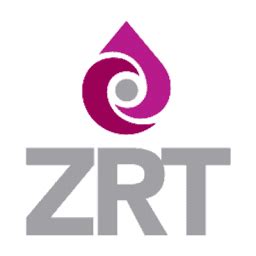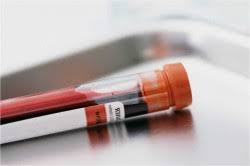Description
Iodine Panel (Dried Urine) – ZRT Laboratory
EASY TO DO FROM HOME!
Please note this lab test may not be order for resident with an address in California (CA), Maryland (MD )and New York (NY). USA shipping is $15. International shipping is $40 and shipping cost is added to your order – including if other products are ordered at the same time with their own shipping charges
Iodine Panel (Dried Urine) – ZRT Laboratory
To restore the vital balance of essential elements, we first need a detailed, accurate measurement of their levels. Not just numbers, but an assessment that offers real meaning.
Iodine Panel (Dried Urine) – Iodine & Creatine
Iodine Panel (Dried Urine) – I & Crtn
Iodine Sufficiency is Likely Different in the Thyroid Gland than in Other Tissues
Controversy exists as to how much iodine consumption is optimal. Sufficiency for the thyroid (about 150-300 μg daily consumption of iodine)2,15 is likely much lower than sufficiency for other tissues that are known to concentrate iodine such as the breast16,24,26,27,29. Studies in humans have shown that for iodine to be protective (prevent benign breast disease such as fibrocysts), a minimum of 3,000 μg and optimally 6,000 μg or more of daily iodine consumption are required24,27,28,29, far exceeding the CDC and WHO recommendations of 150-300 μg daily consumption of iodine-containing foods, salts, or supplements. The higher iodine levels found to be breast- protective are more consistent with the amounts of iodine consumed in countries like Japan, where the breast cancer rate is only about one-fifth that of the U.S. and other countries with much lower iodine consumption16,19,22.
Development of a Patient-Convenient Test to Measure Iodine Levels in Dried Urine
With iodine playing so many different roles in optimizing health and preventing disease in the thyroid and other tissues, it is essential that adequate iodine intake is maintained and problems associated with low or excessive iodine intake are identified and treated appropriately.
To this end, ZRT has developed a simple and convenient test to measure an individual’s iodine level in urine dried on a filter strip. This method was developed to circumvent the more cumbersome collection of all urine over a 24 hour period.
Collecting & Testing Urinary Iodine
Iodine is collected twice during the day (first morning and last night void) on filter strips either by dipping the strip in urine collected in a cup, or by urinating directly on the strip. The urine-saturated filter strips are allowed to dry overnight and then sent to the laboratory for iodine and creatinine testing. The iodine content of the dried filter strips is determined following extraction and measurement by inductively coupled plasma mass spectrometry (ICP-MS). Creatinine is measured in the same urine extract by a modification of the Jaffe method33. Iodine is measured in μg per liter of urine and the average of morning and night levels is taken. The creatinine level is used to correct for hydration status of the individual, because it is dependent on urine dilution. Results are therefore expressed in μg of iodine per g of creatinine.
Assay Validation
Iodine levels determined in extracts of urine dried on filter paper are quantitatively equivalent to measurements in wet urine (r2=0.99). Moreover, in individuals not supplementing with iodine, or eating iodine rich foods, the average iodine level from first morning and last night voids is equivalent to 24 hr collections, making the urine collection procedure much more patient convenient. ZRT Laboratory participates in the CDC-sponsored EQUIP (Ensuring the Quality of Iodine Procedures) iodine standardization program where multiple urine samples are tested for iodine content and compared with values generated by ICP-MS at CDC and other laboratories performing iodine testing around the world (results available on request).
Advantages of Dried Urine for Iodine Testing
• Urine collection and shipment of the dried filter strips are simple and convenient for the patient and practitioner.
• Dual collections of urine directly on a filter strip, upon awakening and just before bed, are far more convenient and less subject to the inherent inaccuracies of a 24 hr urine collection.
• Iodine and creatinine in dried urine are exceptionally stable for weeks at room temperature allowing more flexibility in collection, shipment, testing, and storage.
• Iodine results expressed in μg iodine per g creatinine helps to normalize results when problems exist with urine that is very concentrated or dilute.
• Iodine testing allows for determination of iodine status based on CDC and WHO guidelines for thyroid sufficiency, as well as extra-thyroidal sufficiency.



